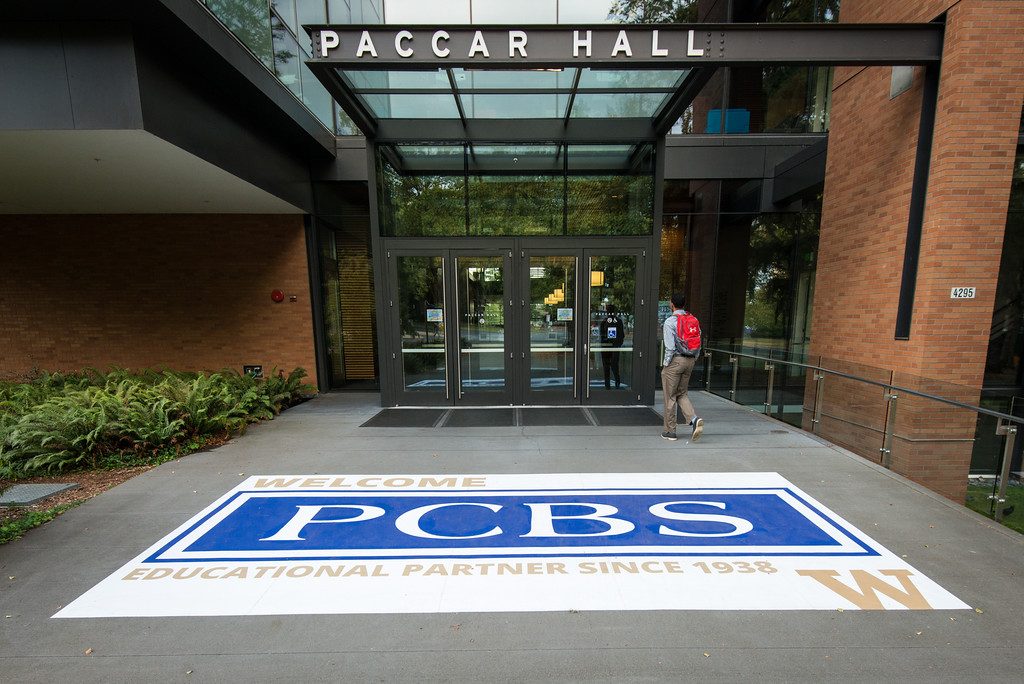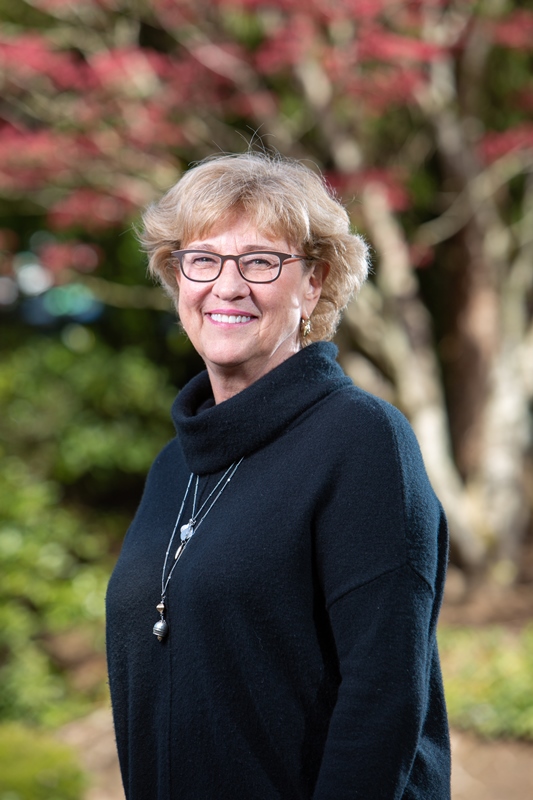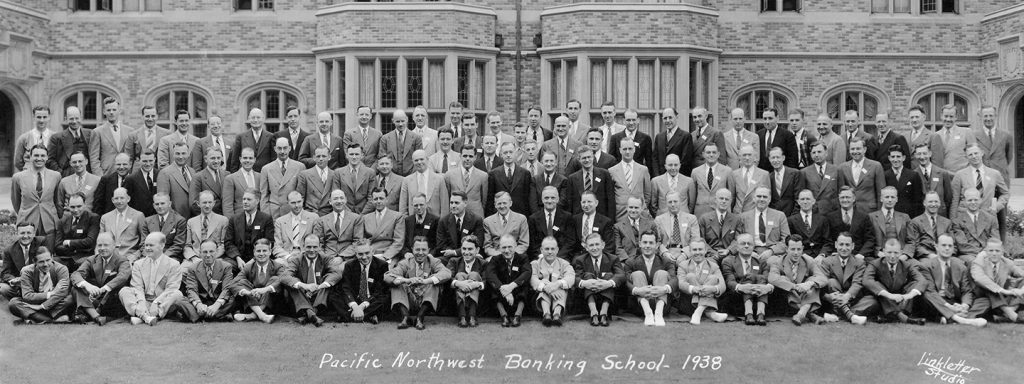A New Balance: Gretchen Claflin is the first woman to lead the nation’s premier banking school
Since its founding in 1938, Pacific Coast Banking School (PCBS) has been inextricably linked to the UW Foster School of Business.
Many Foster deans and prominent profs have served as education directors and faculty of PCBS. A banking simulation developed by Foster’s George Prater is still used as the program’s capstone. And PCBS has invested heavily in the construction of Foster’s world-class facilities, which continue to host its residential session each summer.
So it’s no surprise that a Foster grad now leads the nation’s premier banking school. After serving as chief operating officer since 2013 and president since 2016, Gretchen Claflin (BA 1977) became the first woman CEO of PCBS—or any American banking school—this past spring.
“Gretchen’s familiarity with the operations of the school, her demonstrated leadership capabilities, her grasp of current technologies, and her financial background made her the perfect choice,” said PCBS chairman David Bobbitt.
Her story
Claflin began studying accounting at Duke before transferring to the UW when her husband accepted an offer from a Seattle law firm. After graduating Phi Beta Kappa from Foster, she began working as a CPA for Ernst & Young, where she was first introduced to the banking industry as an auditor. In the mid-1980s, she handled accounting for a prominent developer of commercial real estate.
Later, Claflin continued providing accounting and advisory services, specializing in small business financial management and financial transitions for privately held companies. She built an impressive track record of streamlining management systems and business practices for client companies before being recruited to PCBS by longtime CEO Dave Enger.
She was attracted to the banking school by the same quality that has attracted its 11,000-plus graduates.
“There is something about PCBS that appeals to people’s heads and hearts,” Claflin says. “I believe we make a big difference in our students’ careers, their understanding of the business of banking, and in the kind of leaders they become.”
Mission: critical
She says that this enduring mission is just as important today as it was when PCBS was founded to strengthen a system severely tested during the Great Depression.
The modern banking industry has grown infinitely more complex. So a big part of Claflin’s commission is ensuring that the school stays ahead of the trends. She’s committed to its evolution, listening carefully to her powerful board of industry CEOs and regulators, and to the very banks that send more than 700 of their most promising leaders each session.
This means thoughtfully addressing emerging issues that are challenging bankers today, including cybersecurity, social media, regulation, innovation, building relationships in an era of automation, competing with FinTech companies, leading with integrity and dealing with change.
“One of my key goals is to ensure that our leadership program is preparing bankers to lead in a rapidly changing environment,” she says. “That’s banking today.”
Change agent
Claflin is ever mindful of her organization’s critical role in shaping the future of bankers, banks and the industry.
For individual students, it fills a significant gap in higher education. “You can’t major in banking,” Claflin says.
The best of the best get selected for advanced study at PCBS. It’s a great honor to be chosen. The program is a significant investment for both the banker and the bank that sends them as it requires three annual two-week residential sessions and 250+ hours of interstitial work.
Claflin feels a personal obligation to ensure that the learning and networking experience is transformative.
Proud to be the first woman to achieve her station, she also strongly believes in the power of diversity and applauds efforts made by banks to support and promote those with diverse backgrounds and perspectives. “We appreciate the opportunity to educate future leaders in the banking industry and welcome and encourage all qualified candidates,” Claflin says. “The more inclusive we can be, the more opportunity exists for banks to build a strong, diversified workforce.”
Ultimately, a healthy banking industry is the bottom line for PCBS and Claflin. “I firmly believe in our continuing mission,” she says. “A strong banking system is essential to a strong economy, and I’m proud to play a role in educating and training the next generation of financial leaders.”
 This year’s Pacific Coast Banking School residential session runs August 19-31.
This year’s Pacific Coast Banking School residential session runs August 19-31.



